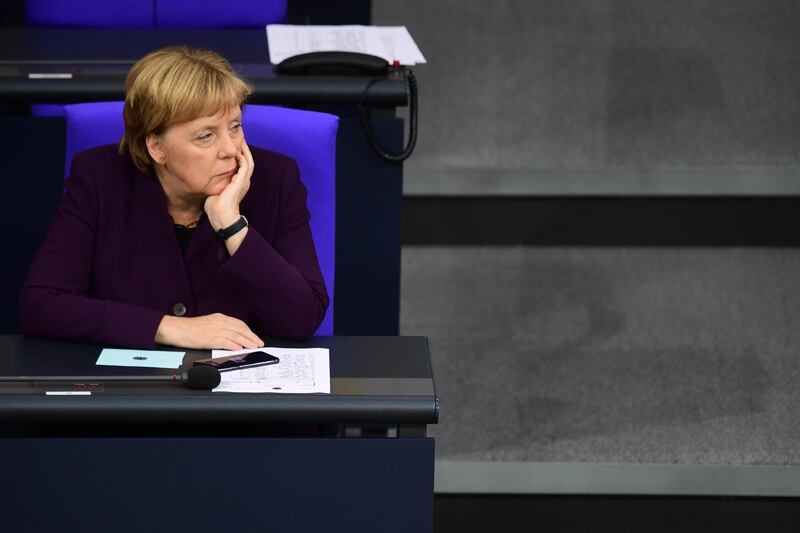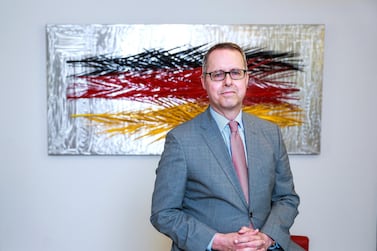In an interview to mark the 30th anniversary of the Berlin Wall, Angela Merkel, Germany's Chancellor, adamantly refused to enter into speculation on the alternative history had reunification not happened in the way it did in 1990.
Instead she pointed out that the different histories of German citizens could not be wished away.
"I have been chancellor of the Federal Republic of Germany for 14 years and am responsible for serving all people in Germany," she told Der Spiegel magazine.
"The assumption that I should prioritise the concerns of eastern Germans is thus wrong. The different life experiences in eastern and western Germany are a reality.
"We should talk more about that and try harder to understand each other.
"I am aware that for a certain generation of East Germans, even as their lives became free by virtue of the peaceful revolution, they did not always become easier.
"One thing that I find completely unacceptable: when people with West German backgrounds go to the East and claim that our current state is no better than the GDR. That is something that must be adamantly rejected."
Everyone watching the fall of the #BerlinWall knew that human rights are universal - it was clear for us all to see. 30 years later, this understanding is at risk from populists and their slogans of hatred. My article of optimism & fear in @tazgezwitscher https://t.co/cN89MB0W9U pic.twitter.com/pfKaWx3p3Q
— Ingibjorg Solrun Gisladottir (@ingibjorgSolrun) November 7, 2019
As a female scientist who grew up in the former East and was 35 when the Wall came down, Mrs Merkel has a very personal perspective on how the country fared before and since.
Overall German unification has been a success, resetting itsplace in the world as Europe's most important nation and an economic superpower. What gets more attention is the pitfalls or continuing divides since unification.
Demographic trends show some parts of the old East Germany will see population drops of 20 per cent or more over the next few decades.
Mrs Merkel said not one leading university is led by a former easterner and less than 4 per cent of top jobs are held by someone born on the wrong side of the Iron Curtain.
Divisions between East and West Germany pre-date Communism and are rooted in religious and cultural schisms of medieval times.
Konrad Adenauer, the first West German chancellor, welcomed the post-war split and referred to the East as a voyage to Asia.
After celebrating the fall of the Wall, West Germans were able to go to work the next day and live as they had done before. No East German had that luxury.
Mrs Merkel believes that while East Germans had learn to live in freedom, that did not mean they did not cherish aspects of their lives behind the Iron Curtain.
That discontent has seen populists and extremist gain far more support in East Germany than in western states.
To Mrs Merkel, the phenomenon of ostalgie (nostalgia for the former German Democratic Republic as the East was formally known) has a political edge.
Depeche Mode and the Berlin Wall (1986). #Pop #Rock #Berlin #BerlinWall #Mauerfall #mauerfall30 @depechemode #DepecheMode pic.twitter.com/j8quI5M90z
— Christophe Robin (@XopheRobin) November 4, 2019
"There is one thing that many West Germans have a hard time understanding, that even in a dictatorship it was possible to lead a successful life; that we had friends and family with whom we celebrated birthdays and Christmas or shared tragedies, despite the state – always, of course, with a certain wariness of the state," she said.
"Because this aspect of our individual lives in the GDR isn't understood, and is sometimes even ignored, by many West Germans, the reaction from many East Germans today is a kind of romanticisation, an attitude of 'nobody can take the lives we had away from us'."







